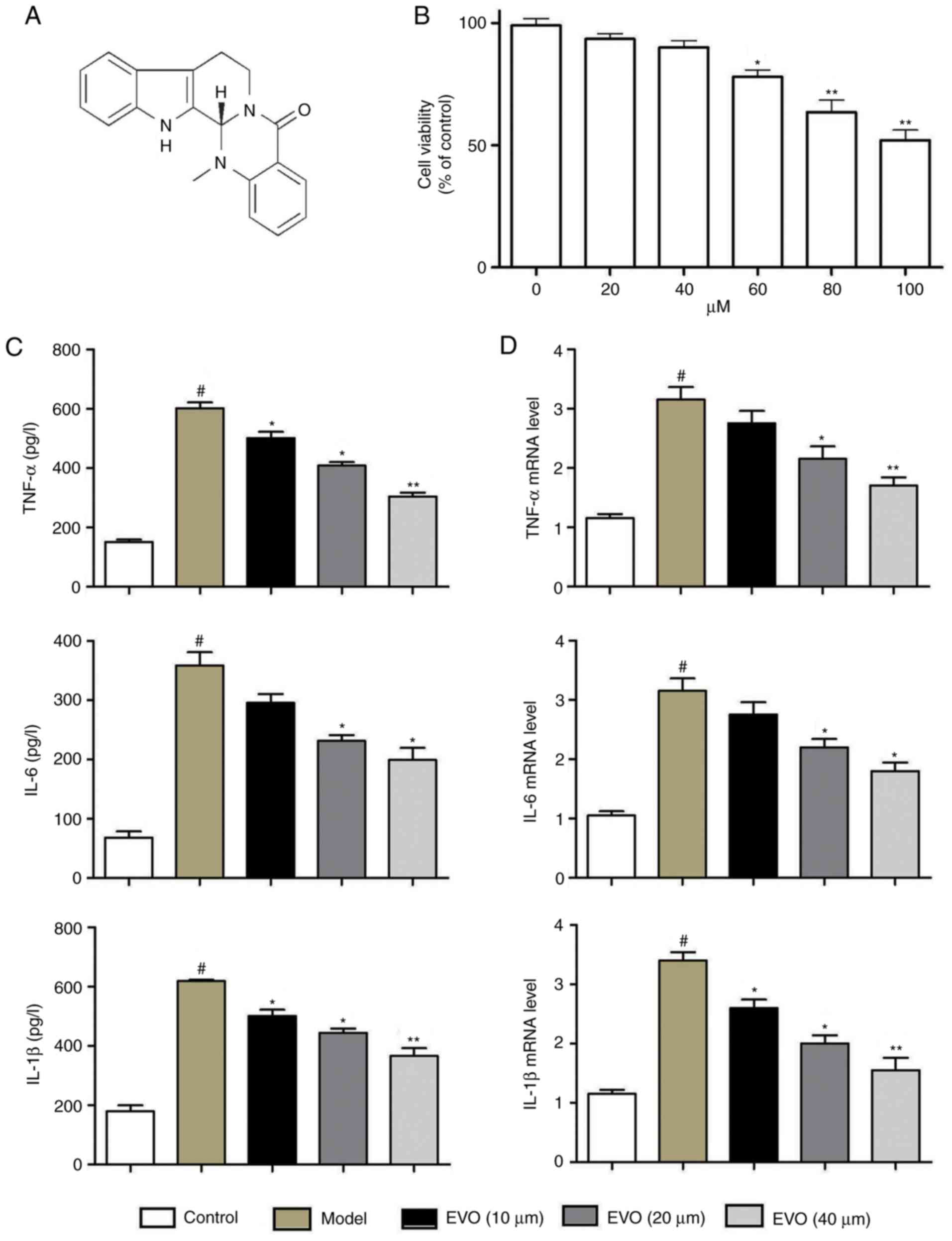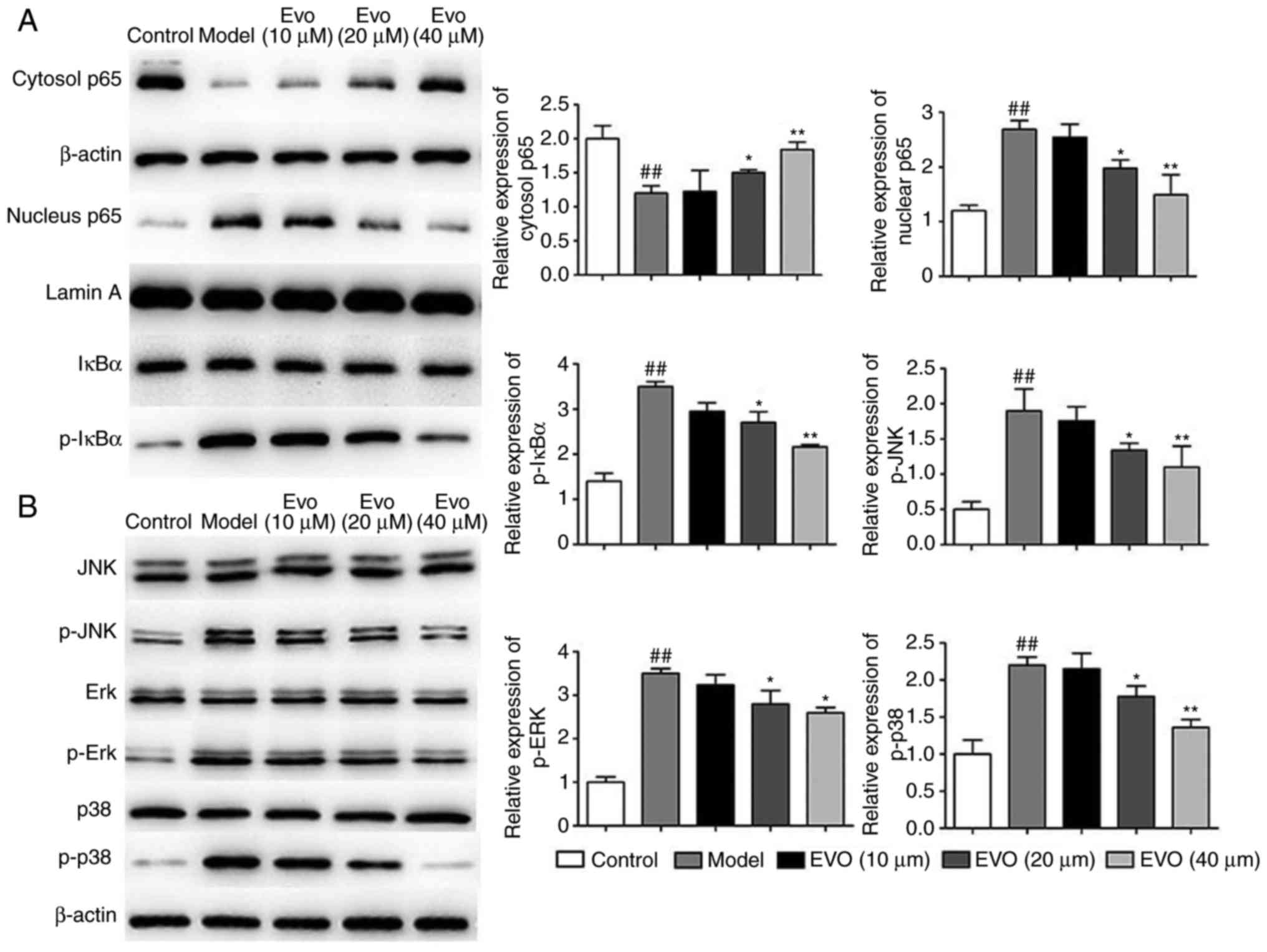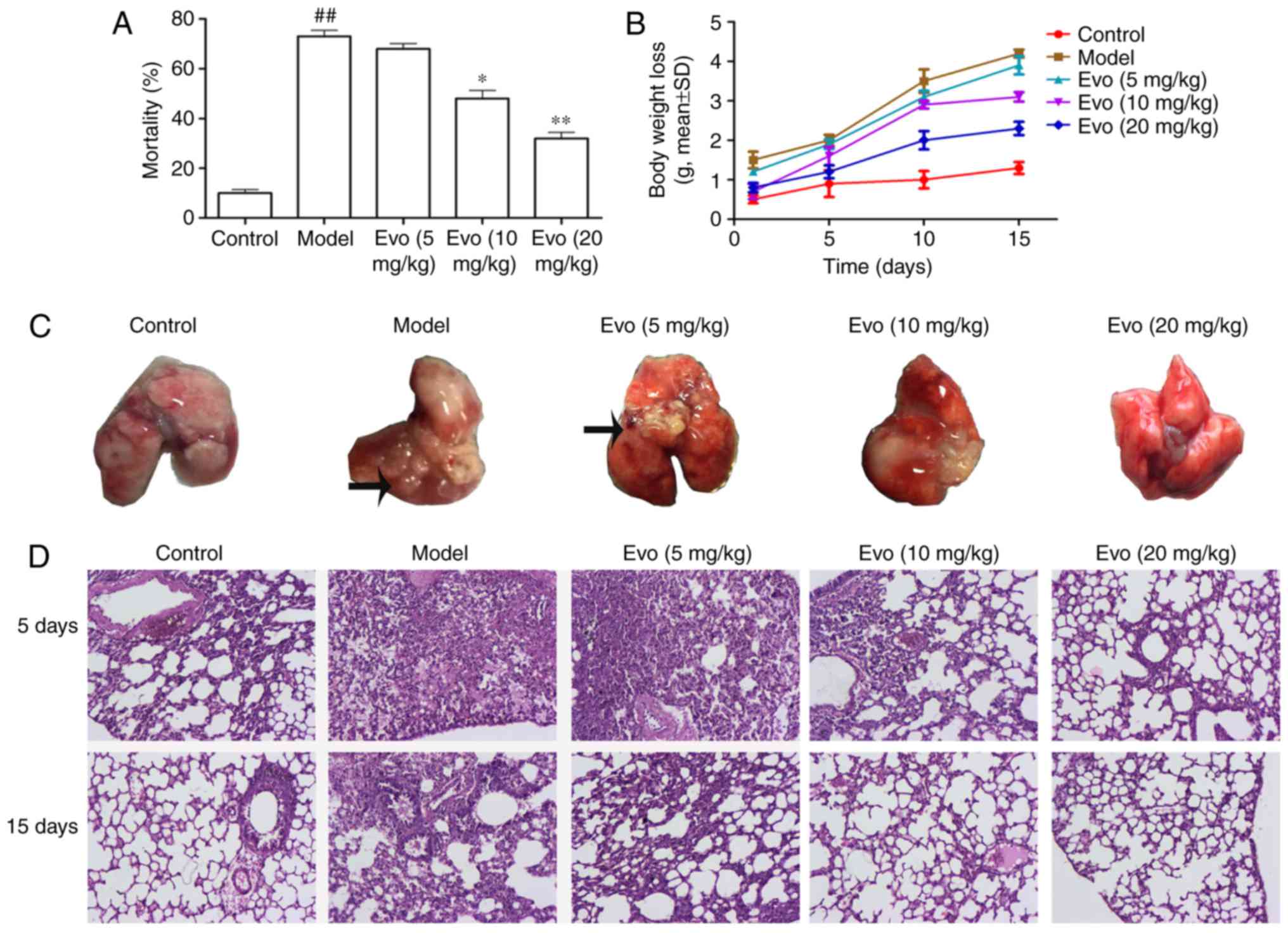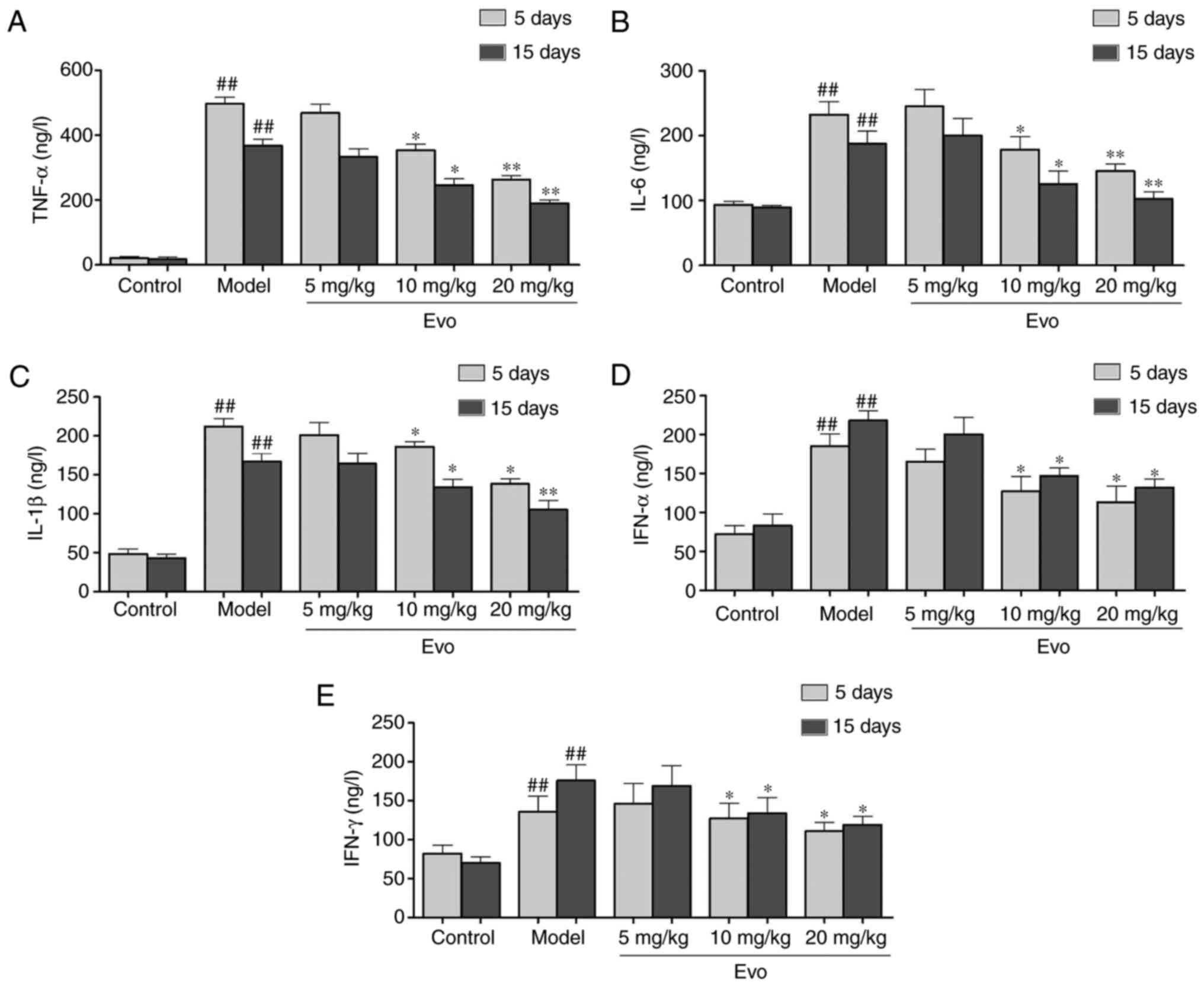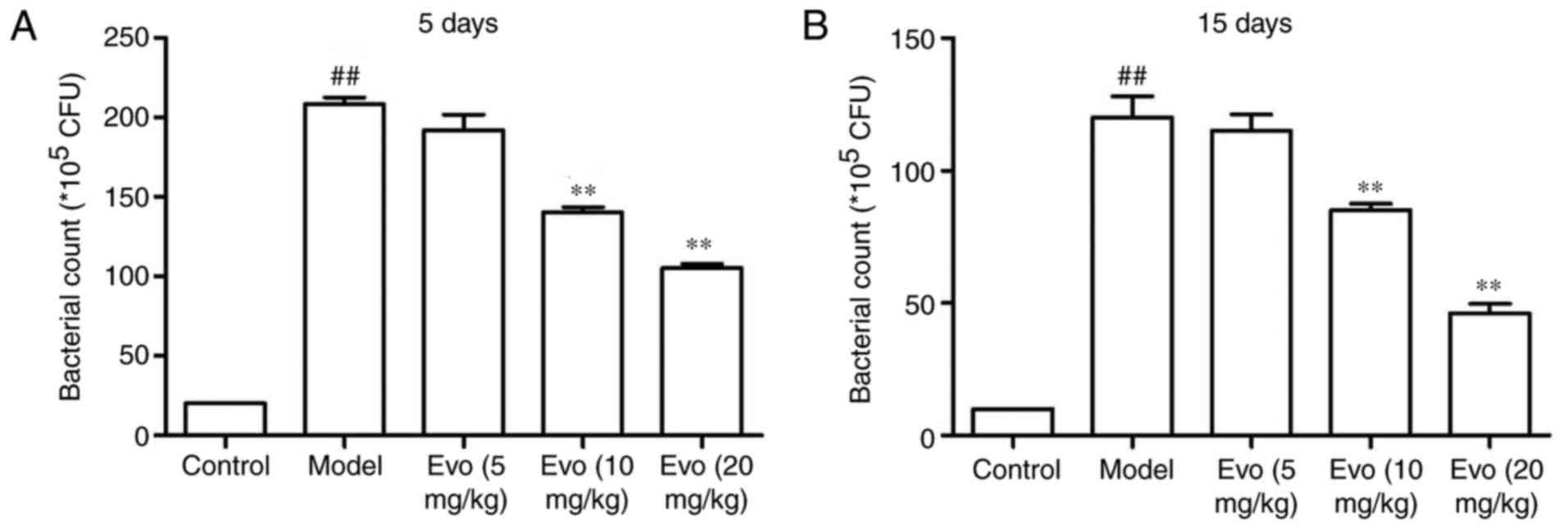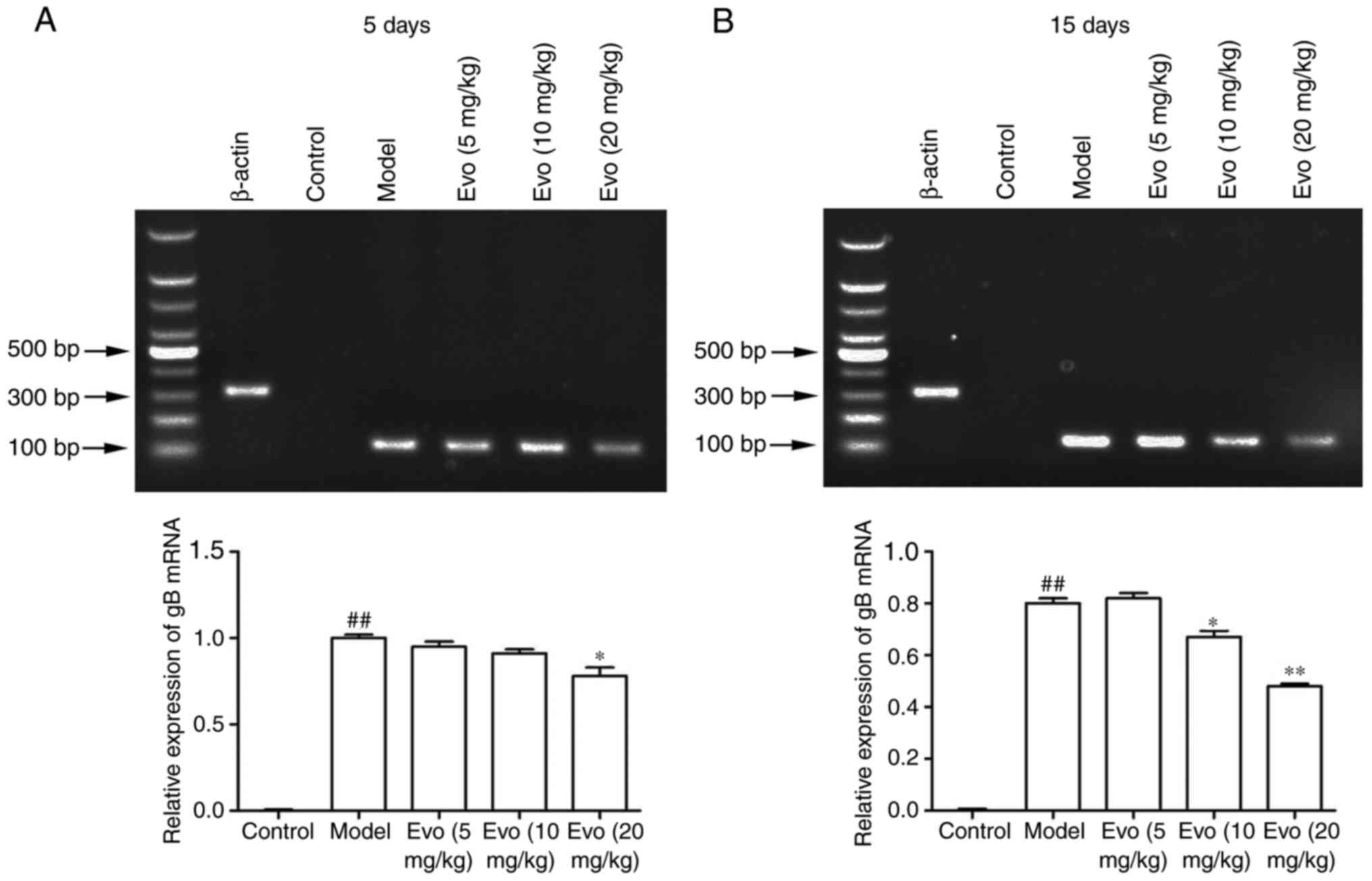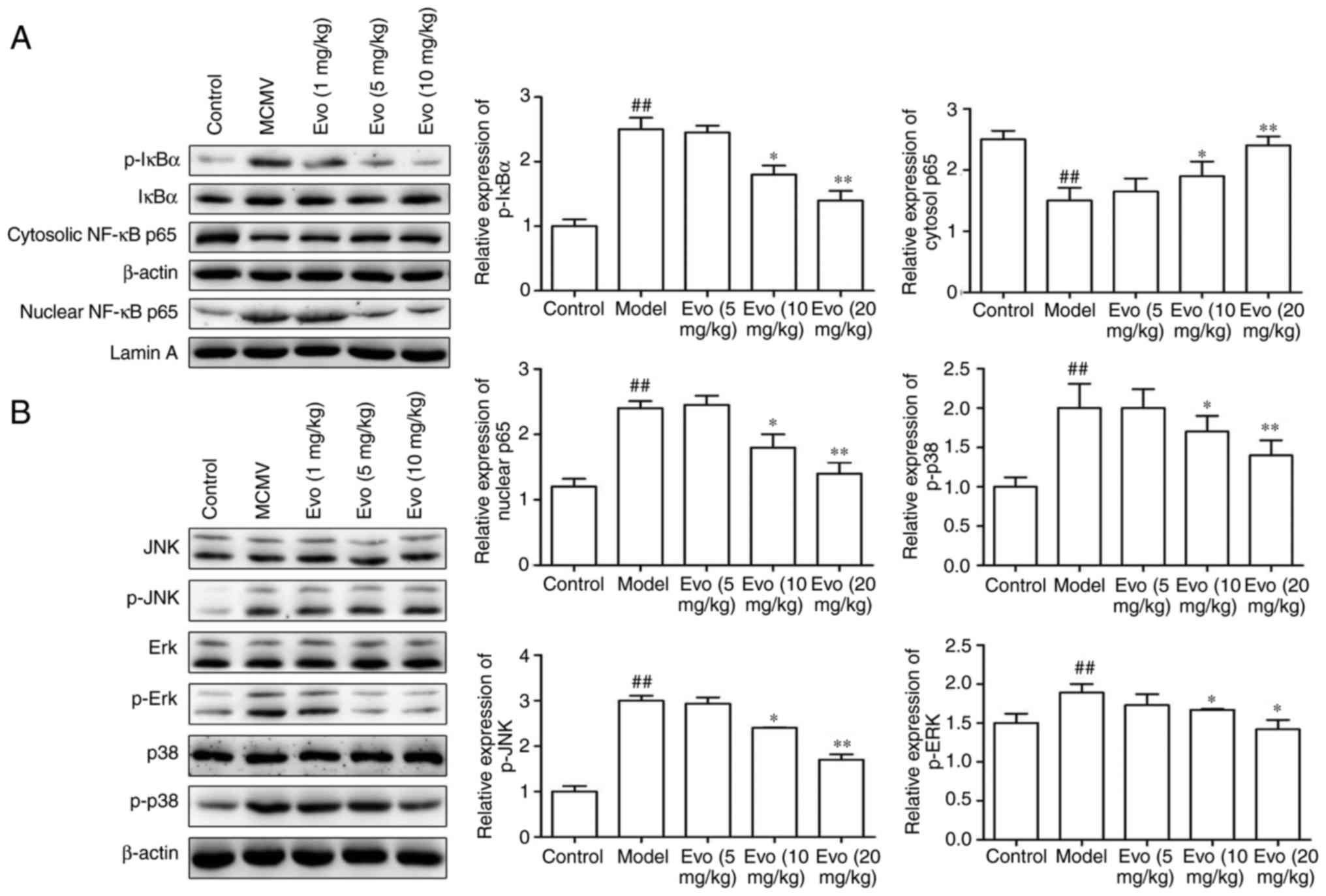|
1
|
Fraser CS, Jha A and Openshaw PJ: Vaccines
in the prevention of viral pneumonia. Clin Chest Med. 38:155–169.
2017. View Article : Google Scholar : PubMed/NCBI
|
|
2
|
Rudan I, O'Brien KL, Nair H, Liu L,
Theodoratou E, Qazi S, Lukšić I, Fischer Walker CL, Black RE and
Campbell H; Child Health Epidemiology Reference Group (CHERG):
Epidemiology and etiology of childhood pneumonia in 2010: Estimates
of incidence, severe morbidity, mortality, underlying risk factors
and causative pathogens for 192 countries. J Glob Health.
3:0104012013.PubMed/NCBI
|
|
3
|
Choi J, Kim YS, Kim MS, Callaway Z, Youn
UK, Kim HB and Kim CK: Acute respiratory distress syndrome by
cytomegalovirus infection in an immunocompetent infant. Pediatr
Pulmonol. 43:824–827. 2008. View Article : Google Scholar : PubMed/NCBI
|
|
4
|
Hanley PJ: Helping the immune system take
the lead. Viruses. 6:2242–2258. 2014. View
Article : Google Scholar : PubMed/NCBI
|
|
5
|
Liu L, Oza S, Hogan D, Perin J, Rudan I,
Lawn JE, Cousens S, Mathers C and Black RE: Global, regional, and
national causes of child mortality in 2000-13 with projections to
inform post-2015 priorities: An updated systematic analysis.
Lancet. 385:430–440. 2015. View Article : Google Scholar
|
|
6
|
Casiraghi C, Shanina I, Cho S, Freeman ML,
Blackman MA and Horwitz MS: Gammaherpesvirus latency accentuates
EAE pathogenesis: Relevance to Epstein-Barr virus and multiple
sclerosis. PLoS Pathog. 8:e10027152012. View Article : Google Scholar : PubMed/NCBI
|
|
7
|
Sinclair J: Human cytomegalovirus: Latency
and reactivation in the myeloid lineage. J Clin Virol. 41:180–185.
2008. View Article : Google Scholar : PubMed/NCBI
|
|
8
|
Hsiao NY, Zampoli M, Morrow B, Zar HJ and
Hardie D: Cytomegalovirus viraemia in HIV exposed and infected
infants: Prevalence and clinical utility for diagnosing CMV
pneumonia. J Clin Virol. 58:74–78. 2013. View Article : Google Scholar : PubMed/NCBI
|
|
9
|
Ascherio A and Munger KL: Environmental
risk factors for multiple sclerosis. Part I: he role of infection.
Ann Neurol. 61:288–299. 2007. View Article : Google Scholar : PubMed/NCBI
|
|
10
|
Xue Lv, Li YQ, Zou G, Zhang L, Ying X,
Wang M, Guo S, Gao L, Li YG, et al: Beneficial effects of
evodiamine on P2X(4)-mediated inflammatory injury of human
umbilical vein endothelial cells due to high glucose. Int
Immunopharmacol. 28:1044–1049. 2015. View Article : Google Scholar : PubMed/NCBI
|
|
11
|
Ying Z, Xia F, Xue Y, Huaping L and Yan L:
Evodiamine protects septic mice against acute lung injury. J Third
Military Med Univ. 21:2309–2314. 2016.
|
|
12
|
Zhang C, Fan X, Xu X, Yang X, Wang X and
Liang HP: Evodiamine induces caspase-dependent apoptosis and S
phase arrest in human colon lovo cells. Anticancer Drugs.
21:766–776. 2010. View Article : Google Scholar : PubMed/NCBI
|
|
13
|
Wang C, Li S and Wang MW:
Evodiamine-induced human melanoma A375-S2 cell death was mediated
by PI3K/Akt/caspase and Fas-L/NF-kappa B signaling pathways and
augmented by ubiquitin-proteasome inhibition. Toxicol In Vitro.
24:898–904. 2010. View Article : Google Scholar
|
|
14
|
Yang J, Cai X, Lu W, Hu C, Xu X, Yu Q and
Cao P: Evodiamine inhibits STAT3 signaling by inducing phosphatase
shatterproof 1 in hepatocellular carcinoma cells. Cancer Lett.
328:243–251. 2013. View Article : Google Scholar
|
|
15
|
Zhao T: Neuroprotection of eodiamine in
the cerebral ischemia: Up-regulated pAkt, p GSK, claudin-5 and
down-regulated NF-κB expression. Hebei Medical University; CLC: pp.
R962013, https://www.dissertationtopic.net/doc/1843193.
|
|
16
|
Hraiech S, Bordes J, Mège JL, de
Lamballerie X, Charrel R, Bechah Y, Pastorino B, Guervilly C and
Forel JM: Cytomegalovirus reactivation enhances the virulence of
Staphylococcus aureus pneumonia in a mouse model. Clin Microbiol
Infect. 23:38–45. 2017. View Article : Google Scholar
|
|
17
|
Livak KJ and Schmittgen TD: Analysis of
relative gene expression data using real-time quantitative PCR and
the 2−ΔΔC T method. Methods. 25:402–408.
2001. View Article : Google Scholar
|
|
18
|
Gavaraskar K, Dhulap S and Hirwani RR:
Therapeutic and cosmetic applications of Evodiamine and its
derivatives-A patent review. Fitoterapia. 106:22–35. 2015.
View Article : Google Scholar : PubMed/NCBI
|
|
19
|
Fan X, Zhu JY, Sun Y, Luo L, Yan J, Yang
X, Yu J, Tang WQ, Ma W and Liang HP: Evodiamine inhibits
Zymosan-induced inflammation in vitro and in vivo: Inactivation of
NF-κB by inhibiting IκBα phosphorylation. Inflammation.
40:1012–1027. 2017. View Article : Google Scholar : PubMed/NCBI
|
|
20
|
Chi G, Wei M, Xie X, Soromou LW, Liu F and
Zhao S: Suppression of MAPK and NF-κB pathways by limonene
contributes to attenuation of lipopolysaccharide-induced
inflammatory responses in acute lung injury. Inflammation.
36:501–511. 2013. View Article : Google Scholar
|
|
21
|
Hraiech S, Papazian L, Rolain JM and
Bregeon F: Animal models of polymicrobial pneumonia. Drug Des Devel
Ther. 9:3279–3292. 2015.PubMed/NCBI
|
|
22
|
Shahangian A, Chow EK, Tian X, Kang JR,
Ghaffari A, Liu SY, Belperio JA, Cheng G and Deng JC: Type I IFNs
mediate development of postinfluenza bacterial pneumonia in mice. J
Clin Invest. 119:1910–20. 2009. View
Article : Google Scholar : PubMed/NCBI
|
|
23
|
Zavala-Vega S, Castro-Escarpulli G,
Hernández-Santos H, Salinas-Lara C, Palma I, Mejía-Aranguré JM,
Gelista-Herrera N, Rembao-Bojorquez D, Ochoa SA, Cruz-Córdova A, et
al: An overview of the infection of CMV, HSV 1/2 and EBV in Mexican
patients with glioblastoma multiforme. Pathol Res Pract.
213:271–276. 2017. View Article : Google Scholar : PubMed/NCBI
|
|
24
|
Kim J, Woo J, Lyu JH, Song HH, Jeong HS,
Ha KT, Choi JY, Han CW, Ahn KS, Oh SR, et al: Carthami Flos
suppresses neutrophilic lung inflammation in mice, for which
nuclear factor-erythroid 2-related factor-1 is required.
Phytomedicine. 21:470–478. 2014. View Article : Google Scholar
|
|
25
|
DiDonato JA, Mercurio F and Karin M: NF-κB
as a critical link between inflammation and cancer. Immunol Rev.
246:379–400. 2012. View Article : Google Scholar : PubMed/NCBI
|
|
26
|
Kim HI, Hong SH, Ku JM, Kang S, Kim TY,
Shin YC and Ko SG: Tonggyu-tang, a traditional Korean medicine,
suppresses pro-inflammatory cytokine production through inhibition
of MAPK and NF-κB activation in human mast cells and keratinocytes.
BMC Complement Altern Med. 17:1862017. View Article : Google Scholar
|
|
27
|
Takada Y, Kobayashi Y and Aggarwal BB:
Evodiamine abolishes constitutive and inducible NF-kappaB
activation by inhibiting IkappaBalpha kinase activation, thereby
suppressing NF-kappaB-regulated antiapoptotic and metastatic gene
expression, up-regulating apoptosis, and inhibiting invasion. J
Biol Chem. 280:17203–17212. 2005. View Article : Google Scholar : PubMed/NCBI
|















